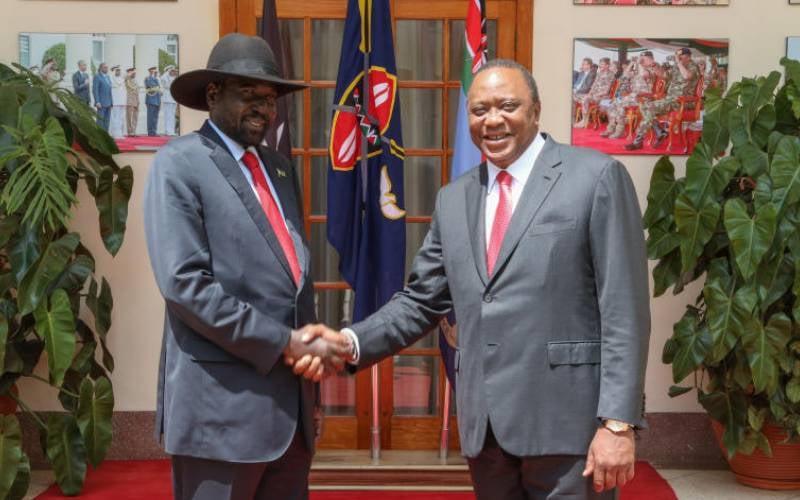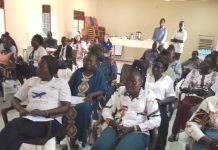Africa-Press – South-Sudan. The term of Kenya’s President Uhuru Kenyatta as the chairperson of the East African Community (EAC) came to an end yesterday.
Kenyatta has been replaced by Burundian counterpart, Evariste Ndayishimiye.
Kenyatta’s exit from the helm of the EAC bloc comes after the Heads of State met in Arusha on Thursday for a summit where they reaffirmed their commitment to rolling out the Common Market Protocol.
At the meeting, which comes after three years of lull, the leaders noted that member countries stood a great chance of benefiting from the common market, especially to revive the battered economies.
‘‘President Uhuru said that infrastructure development was critical in attaining the region’s objective of being one big market stretching from the Indian Ocean to the Atlantic Ocean,’’ the EAC noted on its website.
‘‘President Kenyatta said that East Africa would only attain the Common Market if its citizens were able to communicate easily, and to move and ferry goods freely across the region.’’
He spoke vastly about the need to invest in “infrastructure development, including modern railroads on both the Northern and Central Transport Corridors, was meant to reduce the cost of movement of people and goods across the region.’’
‘‘President Kenyatta said that if the region is not interlinked through infrastructure, it would remain a market for other nations and blocs, not a producer of commodities for sale,’’ stated the EAC in a press release.
Kenya’s president defended the quest for Chinese loans, adding that they come with benefits that trickle down to other sectors and support economic growth.
Tanzanian President, Samia Suluhu Hassan, argued that there is need to invest in agriculture through proper irrigation to increase food security.
‘‘President Hassan emphasised the need to avail cheap credit to farmers to purchase inputs to boost agricultural production.”
‘‘President Hassan further observed that pre-and post-harvest losses were impacting negatively on agricultural production in the region, adding that proper storage was crucial to attaining food security,’’ the EAC press release read.
She challenged her colleagues to think of having a ‘‘food balance sheet for the region that would state what each country produces and on what scale.’’
For Uganda’s Yoweri Museveni, there is need to ensure every country gets a market share of the EAC bloc.
“The more goods people can buy from you, the better,” said President Museveni. He said there were plans to broaden the base of trading.
“The Ugandan Head of State said the current fuel price crisis was another opportunity for the EAC and Africa to take charge of their destiny by shifting to cheap and cleaner energy sources. He disclosed that Uganda would upgrade its Kiira automobile plant to produce electric cars that reduce fuel consumption,’’ the bloc stated.
Burindi’s Ndayishimiye lauded the EAC for “inter-linking its markets through infrastructure development and allowing free movement of persons.’’
Kenya elections
Kenyatta’s stint ends as he prepares to exit the presidency on August 9, 2022, when the East African country will vote in a new president. Currently, his deputy, William Ruto Mr Raila Odinga, who served as prime minister under Mwai Kibaki’s administration, are the front-runners for the top seat.
Ruto, who is vying on his United Democratic Alliance (UDA) ticket, fell out with his boss immediately after the duo won power for Kenyatta’s second term back in 2017. He enjoys massive support from his native region of Rift Valley and Kenyatta’s backyard, Mt Kenya.
On the other hand, Odinga, who has the backing of the Mr Kenyatta, is running for the seat for the fifth time- this time under the Azimio la Umoja One Kenya ticket which is coalition of many parties.
For More News And Analysis About South-Sudan Follow Africa-Press






